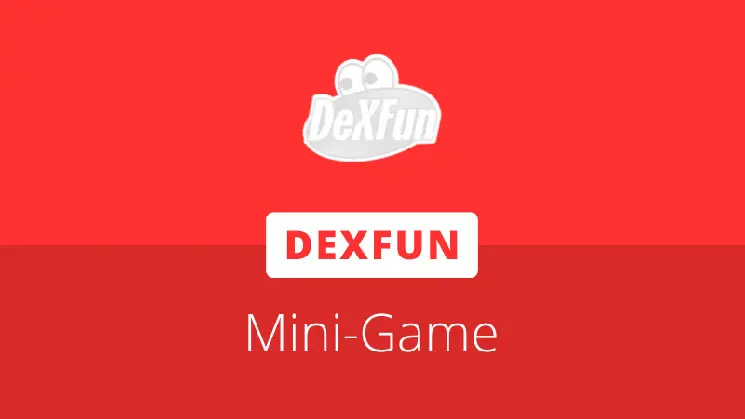PERP
$ 0.8028 USD
$ 0.8028 USD
$ 52.385 million USD
$ 52.385m USD
$ 7.504 million USD
$ 7.504m USD
$ 97.179 million USD
$ 97.179m USD
66.002 million PERP
Perpetual Protocol-related information
Issue Time
2000-01-01
Platform pertained to
--
Current coin price
$0.8028USD
Market Cap
$52.385mUSD
Volume of Transaction
24h
$7.504mUSD
Circulating supply
66.002mPERP
Volume of Transaction
7d
$97.179mUSD
Change
24h
-0.77%
Number of Markets
218
Github Messages
More
Warehouse
Perpetual Protocol
Github's IP Address
[Copy]
Codebase Size
7
Last Updated Time
2021-01-04 06:09:27
Language Involved
--
Agreement
--
Crypto token price conversion
Current Rate0
0.00USD
PERP Price Chart
Perpetual Protocol introduction
 Markets
Markets3H
-0.55%
1D
-0.77%
1W
-18.42%
1M
-5.57%
1Y
-3.69%
All
-91.65%
| Aspect | Information |
|---|---|
| Short Name | PERP |
| Full Name | Perpetual Protocol |
| Founded Year | 2020 |
| Main Founders | Yenwen Feng and Shao-Kang Lee |
| Support Exchanges | Binance, Uniswap, and SushiSwap, and others |
| Storage Wallet | MetaMask Wallet, and others |
Overview of PERP
Perpetual Protocol (PERP) is a decentralized finance (DeFi) protocol launched in 2020. It was co-founded by Yenwen Feng and Shao-Kang Lee. It functions on the Ethereum blockchain and is a system for the trading of perpetual contracts, which are agreements between buyers and sellers with no expiry date, hence enhancing flexibility in cryptocurrency trading.
PERP enables traders to long or short digital assets with up to 10x leverage, which has the potential to amplify their profits or losses. It operates on a virtual automated market maker (vAMM) model, which aims to facilitate trading by adjusting the price of digital assets based on supply and demand. Prices are synced with those on external markets using an oracle mechanism to decrease the risk of price manipulations.
The native token of the Perpetual Protocol is the PERP token, and it serves various functions within the protocols ecosystem including staking and governance. It is tradable on various cryptocurrency exchanges, such as Binance, Uniswap, and SushiSwap. MetaMask Wallet is one of the known wallets recommended for storing PERP tokens.
Pros and Cons
| Pros | Cons |
|---|---|
| Operates on Ethereum blockchain | Dependent on Ethereum network stability |
| Perpetual contracts offering trading flexibility | Potential for amplified losses with leverage |
| Uses a vAMM model to facilitate trading | Risk of price manipulations despite oracle mechanism |
| Functions of staking and governance for PERP token | Centralization concerns due to governance model |
| Support from multiple exchanges | Reliant on third-party wallets for secure storage |
PERP Price Prediction
The Perpetual Protocol (PERP) token is forecasted to see significant price movements in the coming years. For 2030, the token is expected to oscillate between a low of $0.01529 and a high of $23.62. By 2040, the cryptocurrency is predicted to reach a peak of $1.66, with a minimum price of around $0.001301, trading within that range. As we look ahead to 2050, technical analysis indicates that Perpetual Protocol's minimum price will be approximately $0.06063 and the maximum price will be $11.48, with an average trading cost estimated at about $3.02.
Exchanges to Buy PERP
Several cryptocurrency exchanges support buying Perpetual Protocol (PERP), these include:
1. Binance: Binance, one of the leading and largest cryptocurrency exchanges globally, supports PERP trading. Pairs available include PERP/USDT, PERP/BTC, and PERP/ETH.
2. Uniswap: Uniswap, a decentralized exchange built on Ethereum, presents the ability to trade PERP. The primary pair available is PERP/ETH.
3. SushiSwap: Another decentralized exchange on Ethereum, SushiSwap also supports PERP trading. The PERP/ETH pair is predominantly traded.
4. FTX: FTX is a cryptocurrency derivatives exchange that supports traditional cryptocurrency trading. The platform supports the PERP/USD trading pair.
5. Gate.io: Gate.io is a cryptocurrency exchange offering PERP trading. PERP/USDT is among the supported trading pairs.
How to Store PERP?
Storing PERP tokens requires a digital wallet that supports Ethereum based ERC-20 tokens since PERP is built on the Ethereum blockchain. Here are the types of wallets that you can consider for storing PERP:
1. Software Wallets: These wallets are programs that you can install on your desktop or mobile devices. A popular software wallet that supports ERC-20 tokens like PERP is MetaMask. MetaMask is a browser extension and mobile app that comes with an inbuilt swap feature and it's also widely used to interact with numerous DeFi platforms.
2. Hardware Wallets: Often considered the safest option, hardware wallets are physical devices that store your tokens offline. Examples include Ledger and Trezor, both of which support ERC-20 tokens including PERP.
PERP Good investment market
- 1
- 2
- 3
- 4
Perpetual Protocol User Reviews
Perpetual Protocol News
TokenDeXFun launches Telegram perp mini-game allowing users to earn FUN points
DeXFun, an upcoming gamified decentralized perpetual futures platform, has introduced a new mini-gam
2024-10-15 02:19

TokenDogecoin, Solana, Avalanche Perp Contracts Brace For Major Listing
HashKey Global has announced a major expansion of its derivatives offerings. The platform is set to
2024-07-30 21:20

ExchangeSynFutures V3 Goes Live on Base, Launches Meme Perp Summer
SynFutures, the onchain perp protocol for listing and trading any asset, is now live on Coinbase's L
2024-07-03 06:00

NewsBitcoin Above USD 62K, Ethereum and Altcoins Remain In Uptrend
Bitcoin price gained traction and surpassed USD 62,000. Ethereum is facing resistance near USD 3,920, XRP is struggling below 1.15. STX rallied 30%, and SHIB gained 9%.
2021-10-18 14:45



3 ratings